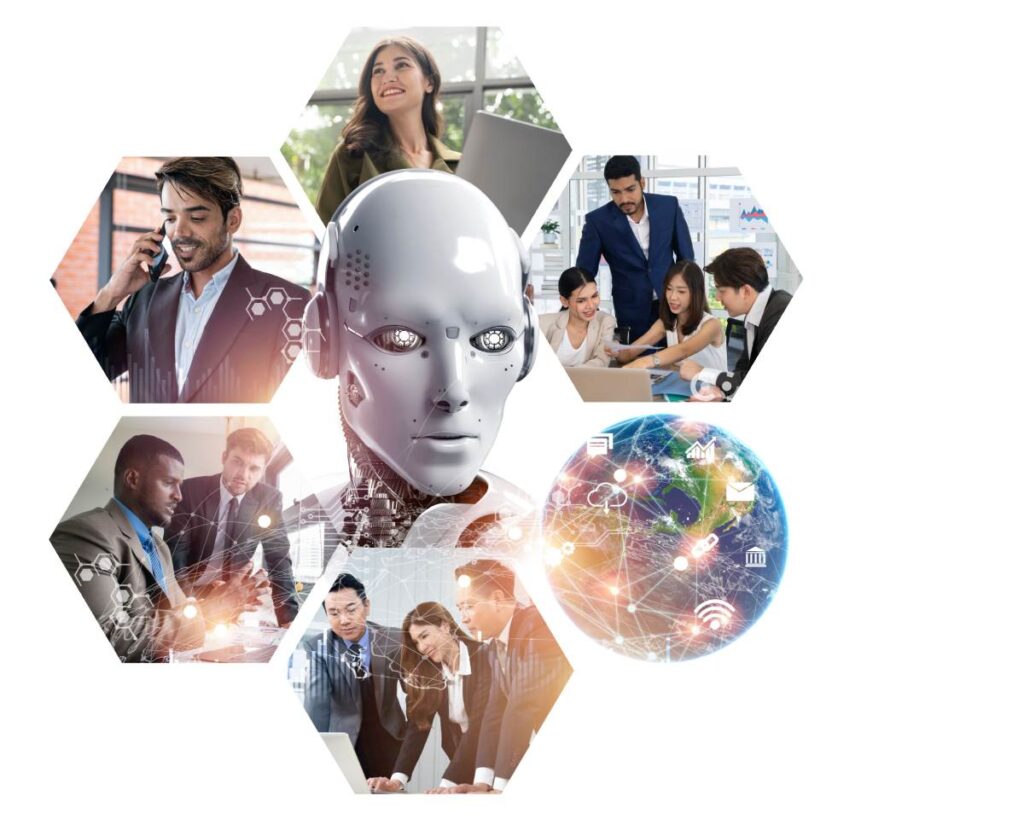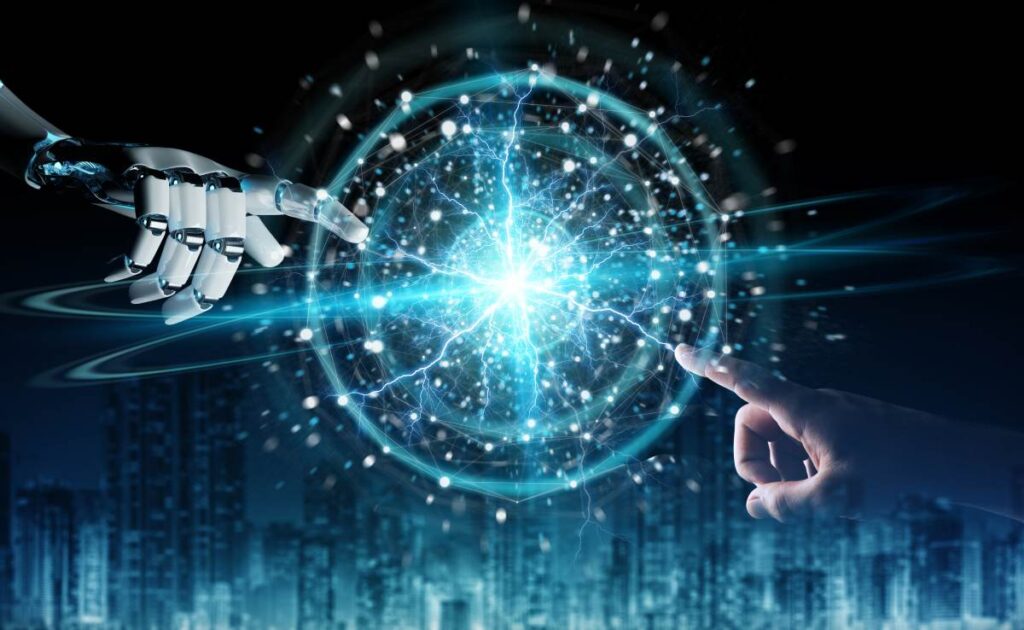The rapid advancement of artificial intelligence (AI) is transforming various sectors, leading to significant changes in job markets and employment trends. As businesses increasingly adopt AI technologies, the landscape of work is evolving, creating both opportunities and challenges for the workforce. Understanding the impact of AI on job markets is crucial for employees, employers, and policymakers alike, as it shapes the future of employment and economic growth.
In this article, we will delve into the multifaceted effects of AI on employment, examining how automation and machine learning are reshaping job roles across industries. We will explore the types of jobs that are most at risk of being automated, as well as those that are likely to thrive in an AI-driven economy. Additionally, we will discuss the skills that will be in high demand as the job market adapts to these technological advancements, providing insights for individuals looking to future-proof their careers.
Furthermore, we will analyze the broader implications of AI on workforce dynamics, including the potential for job displacement and the creation of new roles that leverage human creativity and emotional intelligence. By understanding these trends, readers will be better equipped to navigate the evolving job market and make informed decisions about their career paths. Join us as we uncover the profound impact of AI on job markets and employment trends, and discover how to thrive in this new era of work.
Artificial Intelligence (AI) is transforming various sectors, leading to significant changes in job markets and employment trends. As AI technologies continue to evolve, understanding their impact on employment is crucial for workers, employers, and policymakers alike. This article explores several key subtopics related to this important issue.
Automation and Job Displacement
One of the most discussed impacts of AI on job markets is automation, which has the potential to displace a significant number of jobs. Industries such as manufacturing, retail, and transportation are increasingly adopting AI-driven technologies to enhance efficiency and reduce costs. As machines and algorithms take over repetitive tasks, many low-skilled jobs are at risk of being eliminated.
However, while automation may lead to job displacement, it also creates opportunities for new roles that require advanced skills. Workers may need to adapt by acquiring new competencies that align with the demands of an AI-driven economy. This shift emphasizes the importance of continuous learning and reskilling to remain competitive in the job market.
Creation of New Job Categories
Despite concerns about job displacement, AI is also responsible for the creation of new job categories. As businesses integrate AI technologies, they require professionals who can develop, manage, and maintain these systems. Roles such as AI specialists, data scientists, and machine learning engineers are becoming increasingly vital.
Moreover, the rise of AI has led to the emergence of interdisciplinary roles that combine technical skills with domain expertise. For instance, healthcare professionals who understand AI applications in medical diagnostics are in high demand. This trend highlights the need for a workforce that is not only tech-savvy but also capable of applying AI in various fields.
The Gig Economy and AI
The gig economy has been significantly influenced by AI technologies, which facilitate the connection between freelancers and clients. Platforms powered by AI algorithms can match workers with job opportunities based on their skills and availability, making it easier for individuals to find short-term or project-based work.
While the gig economy offers flexibility and autonomy, it also raises concerns about job security and benefits. Workers in this sector often lack traditional employment protections, which can lead to financial instability. As AI continues to shape the gig economy, it is essential to address these challenges to ensure fair working conditions for all.
Upskilling and Reskilling Initiatives
As AI transforms job markets, upskilling and reskilling initiatives are becoming increasingly important. Employers and educational institutions are recognizing the need to equip workers with the skills necessary to thrive in an AI-driven landscape. Training programs focused on digital literacy, data analysis, and AI technologies are being implemented to help workers adapt.
Governments are also playing a role by investing in workforce development programs that promote lifelong learning. By fostering a culture of continuous education, societies can better prepare their workforce for the challenges posed by AI and ensure that individuals can transition into new roles as needed.
AI’s Role in Enhancing Productivity
AI technologies have the potential to enhance productivity across various industries. By automating routine tasks, AI allows employees to focus on more complex and creative aspects of their work. This shift can lead to increased job satisfaction and improved overall performance.
Furthermore, AI can provide valuable insights through data analysis, enabling businesses to make informed decisions. As organizations leverage AI to optimize their operations, they may experience growth, which can lead to job creation in the long run. The challenge lies in ensuring that workers are equipped to harness these new tools effectively.
Ethical Considerations in AI Employment
The integration of AI into the workforce raises important ethical considerations. Issues such as bias in AI algorithms, data privacy, and the potential for surveillance in the workplace must be addressed to ensure fair treatment of employees. Companies must prioritize ethical AI practices to build trust and maintain a positive work environment.
Moreover, policymakers need to establish regulations that protect workers’ rights in an AI-driven economy. By fostering transparency and accountability in AI deployment, stakeholders can mitigate potential negative impacts on employment and promote a more equitable job market.
The Future of Work: Hybrid Models
The future of work is likely to involve hybrid models that combine human and AI capabilities. As AI takes over certain tasks, human workers will be required to collaborate with machines to achieve optimal results. This collaboration can lead to innovative solutions and improved efficiency.
Organizations that embrace hybrid work models may find themselves better positioned to adapt to changing market demands. By leveraging the strengths of both humans and AI, businesses can create a more dynamic and resilient workforce that is capable of navigating the complexities of the modern economy.
Global Perspectives on AI and Employment
The impact of AI on job markets varies across different regions and economies. While some countries may experience rapid job displacement due to automation, others may benefit from new job creation and economic growth. Understanding these global perspectives is essential for developing effective policies that address the unique challenges faced by each region.
International collaboration and knowledge sharing can help countries learn from each other’s experiences in managing the transition to an AI-driven economy. By fostering a global dialogue on AI and employment, stakeholders can work together to create a more inclusive and sustainable future for all workers.
Artificial Intelligence (AI) is transforming various sectors, leading to significant changes in job markets and employment trends. This summary outlines the key impacts of AI on employment.
| Impact | Description |
|---|---|
| Job Displacement | AI and automation are replacing routine and manual jobs, particularly in manufacturing, retail, and administrative sectors. |
| Job Creation | While some jobs are lost, AI also creates new roles in tech development, data analysis, and AI maintenance, requiring a skilled workforce. |
| Skill Shift | There is a growing demand for skills in AI, machine learning, and data science, leading to a shift in educational and training programs. |
| Increased Productivity | AI enhances productivity by automating repetitive tasks, allowing employees to focus on more complex and creative work. |
| Remote Work Opportunities | AI tools facilitate remote work, enabling companies to hire talent from a global pool, thus changing traditional employment models. |
| Economic Inequality | The benefits of AI may not be evenly distributed, potentially widening the gap between high-skill and low-skill workers. |
| Workplace Dynamics | AI is changing workplace dynamics, fostering collaboration between humans and machines, and altering team structures. |
In conclusion, the impact of AI on job markets is multifaceted, presenting both challenges and opportunities. Adapting to these changes requires proactive measures in education, policy-making, and workforce development.



